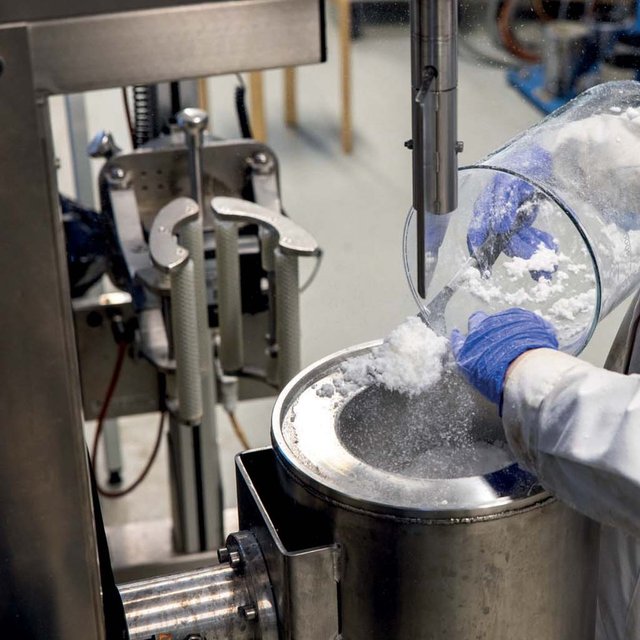
Source
According to experts, between 80,000 and 150,000 million items of clothing are manufactured in the world every year, if we take into account that there are about eight billion of us and that half of them wear loincloths, that means that we have 20 items of clothing per year every one on average, garments that sooner or later end up in landfills since they are not easy to recycle.
Según los expertos, en el mundo se fabrican cada año entre 80.000 y 150.000 millones de prendas de ropa, si tenemos en cuenta que somos unos ocho mil millones y que la mitad van en pelotas, eso quiere decir que tocamos a 20 prendas por año cada uno de media, prendas que tarde o temprano acaban en los vertederos ya que no son fáciles de reciclar.
Companies like Shein or Temu clothes are promoting the trend of ultra-fast fashion, so fleeting that there is not even time for the clothes to get dirty and they are already out of fashion, as a result of all this, together, we throw away currently 92 million tons of clothing per year of which only one eighth of that amount is recycled.
Compañías como Shein o Temu clothes están impulsando la tendencia de ultra-fast fashion (moda ultrarrápida), tan fugaz que ni siquiera da tiempo a que la ropa se ensucie y ya está pasada de moda, como resultado de todo esto, entre todos, desechamos actualmente 92 millones de toneladas de ropa al año de las cuales solo una octava parte de esa cantidad se recicla.
Source
Obviously in order to maintain this sales rate and these prices, the quality of the materials leaves a lot to be desired, instead of natural fibers such as cotton or wool, these are mixed with synthetic materials such as polyester, acrylic or nylon, which are cheaper materials to produce but much more difficult to recycle.
Obviamente para poder mantener este ritmo de venta y esos precios, la calidad de los materiales deja bastante que desear, en lugar de fibras naturales como el algodón o la lana, estos se mezclan con materiales sintéticos como el poliéster, el acrílico o el nylon, que son materiales más baratos de producir pero mucho más difíciles de reciclar.
But now a group of researchers at the University of Delaware have developed a new recycling technique that breaks down blended fabrics using chemicals and microwaves that, in 15 minutes, can dissolve any blend of cotton, polyester, nylon and lycra into molecules that can be used to make new fabrics or other usable products.
Pero ahora un grupo de investigadores de la Universidad de Delaware han desarrollado una nueva técnica de reciclaje que descompone tejidos mezclados mediante el uso de productos químicos y microondas que, en 15 minutos, puede disolver cualquier mezcla de algodón, poliéster, nailon y licra en moléculas que pueden utilizarse para fabricar nuevos tejidos u otros productos utilizables.

Source
This type of mixed fibers are especially difficult to recycle, which is why until now they were shredded to make some type of filling or directly thrown into landfills. If this new technology works, at least we can make all these pieces of clothing with the same recycled materials over and over again until they (the clothes and/or the buyers) disintegrate.
Este tipo de fibras mixtas son especialmente difíciles de reciclar, por lo que hasta ahora se trituraban para fabricar algún tipo de rellenos o directamente tiraban al vertedero. Si esta nueva tecnología funciona, al menos podremos hacer todas estas prendas de ropa con los mismos materiales reciclados una y otra vez hasta que se desintegren (las prendas y/o los compradores).
There is no doubt that these types of solutions are very good to be able to continue consuming like possessed without generating waste, but I still think that perhaps it would not be a bad idea to educate consumers so that they do not get carried away by vanity and abandon those compulsive buying practices, of clothes or whatever.
No cabe duda de que este tipo de soluciones son muy buenas para poder seguir consumiendo como posesos sin generar residuos, pero yo sigo pensando que a lo mejor no sería mala idea educar a los consumidores para que no se dejen llevar por la vanidad y que abandonen esas prácticas de compra compulsiva, de ropa o de lo que sea.
More information/Más información
https://css.washingtonpost.com/climate-solutions/2024/07/05/fast-fashion-clothing-waste-recycling/
Trust me if this development try out to be true and sustained, it will really go a long way in helping people
Downvoting a post can decrease pending rewards and make it less visible. Common reasons:
Submit
Wow that definitely means the world constantly use cloth every year.
I never knew that amount of over 150,000 million item of cloth is manufactured every year
Downvoting a post can decrease pending rewards and make it less visible. Common reasons:
Submit
Well I am so happy to see that scientist have fInally find a way to embrace the culture and this is definitely great to see
Downvoting a post can decrease pending rewards and make it less visible. Common reasons:
Submit
Estoy de acuerdo en que la educación de los consumidores es más barato, acaso, muchos pueden regalar la ropa para mucha gente que no tiene que vestir.
Gracias por compartir, saludos y éxitos.
Downvoting a post can decrease pending rewards and make it less visible. Common reasons:
Submit